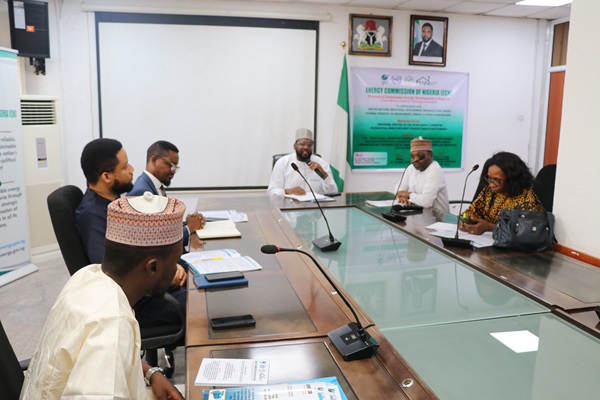
The Energy Commission of Nigeria (ECN), in collaboration with various stakeholders, has established a committee focused on the project titled “Improving Nigeria’s Industrial Energy Performance and Resource Efficient Cleaner Production through Programmatic Approaches and the Promotion of Innovation in Clean Technology Solutions” (NIG IEE/RECP Project).
During the inauguration in Abuja on Friday, director-general of ECN, Dr. Mustapha Abdullahi stated that the project’s goal is to accelerate the adoption of Industrial Energy Efficiency (IEE) and enhance environmental performance in enterprises through best practices in Resource Efficiency and Cleaner Production (RECP) throughout Nigeria.
Abdullahi noted that the project, supported by the Global Environment Facility (GEF), the United Nations Industrial Development Organisation (UNIDO) and other national stakeholders, encompasses multiple dimensions and spans various sectors of the economy.
“The implementation of this project requires an inclusive approach, where additional stakeholders must be brought together to ensure adequate policy synergy and consistency,” he emphasised.
“As we approach the end of the project’s life cycle, it is imperative for stakeholders to be involved in tracking and reviewing the actual achievements and outcomes of the project. It is in this context that the inter-agency committee, composed of policymakers in the energy sector, will be inaugurated after this meeting.”
Abdullahi highlighted the necessity of a suitable policy and legislative framework to promote national energy efficiency and conservation best practices in any sector where such practices are still developing. He acknowledged that while primary energy efficiency policies exist in Nigeria, they need to be translated into industry-specific policies by individual organisations to fully integrate energy efficiency best practices into their daily operations.
“The essence of this project is to convey the general national policy framework to specific sub-sector policy documents, demonstrating a commitment to energy management systems that achieve continuous energy savings and cost reductions,” he added.
While appreciating the support of development partner UNIDO, Abdullahi encouraged participants to view this as an opportunity to learn and contribute to Nigeria’s development.
National programme coordinator for Environment and Energy at UNIDO, Oluyomi Banjo praised Nigeria’s progress in industrial energy efficiency. He highlighted the importance of efficiency, innovation, and self-sufficiency in ensuring the country’s competitiveness, especially amid rising global energy costs.
He also mentioned that the project, backed by the Global Environment Facility, will concentrate on 13 selected industrial cities across Nigeria. “This initiative will assist Nigeria in fulfilling its international commitments, including its nationally determined contributions (NDCs) and energy transition plan (ETP), as well as drive the country towards energy sufficiency,” Banjo explained.

